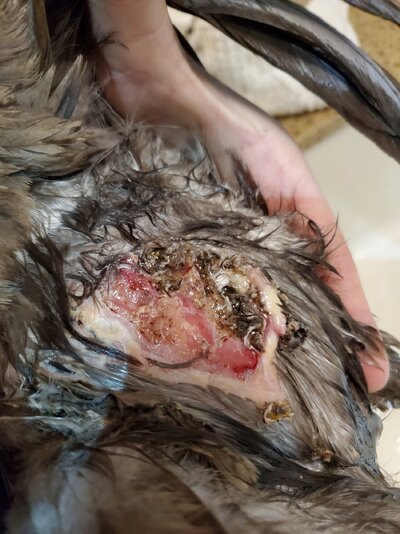A dog attacked my flock today as they were free ranging in our pasture close to our house. Lots of chickens with scratches, missing feathers, and several who are limping. Two birds with the worst injuries, I brought indoors for treatment.
I washed both with soap and water. Put some iodine on the wound and neosporin. I know this isn't ideal but it's what I had in the moment. Tomorrow I will be a little better situated to treat better.
What suggestions do you have @azygous or @Eggcessive? I am out of Amoxicillin but I do have Metronidazole. Would that work? I'm also picking up some Vetricyn.
What else should I get? I gave them some NutriDrench. Should I switch to electrolytes?


I washed both with soap and water. Put some iodine on the wound and neosporin. I know this isn't ideal but it's what I had in the moment. Tomorrow I will be a little better situated to treat better.
What suggestions do you have @azygous or @Eggcessive? I am out of Amoxicillin but I do have Metronidazole. Would that work? I'm also picking up some Vetricyn.
What else should I get? I gave them some NutriDrench. Should I switch to electrolytes?






